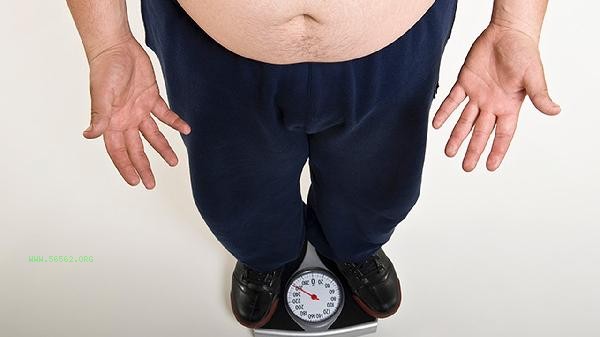Dieting to lose weight usually indicates that the body has entered a metabolic adaptation period, which may be caused by a decrease in basal metabolism, muscle loss, insufficient calorie intake, hormonal imbalances, nutritional imbalances, and other reasons.

1. Metabolic decline:
Long term low calorie diet can lead to a decrease in basal metabolic rate, and the body automatically reduces consumption to cope with energy deficiency. Adult women's basal metabolism may decrease by 15% -30%, and even if they maintain their original diet, their weight may stagnate. It is recommended to disrupt metabolic balance through intermittent heat cycling or increasing protein intake.
2. Muscle loss:
Simply dieting can lead to muscle breakdown for energy supply. For every 1 kilogram of muscle loss, the daily basal metabolism decreases by about 50 calories. After a decrease in muscle mass, body fat percentage may increase, resulting in a phenomenon of "lean body mass but loose body shape". Resistance training and daily intake of 1.2-1.6 grams of protein per kilogram of body weight can alleviate this problem.
3. disappearance of calorie deficit:

As weight decreases, the energy required to sustain life synchronously decreases. If the calorie intake is not adjusted in a timely manner, the initial effective calorie gap may gradually disappear. Daily calorie intake needs to be recalculated and dynamically adjusted for every 5-10% weight loss.
4. Hormonal changes: A decrease of more than 50% in leptin levels can enhance hunger, while an increase in cortisol promotes fat accumulation. Women may experience menstrual disorders and decreased testosterone levels in men. These hormonal changes cause the body to enter a 'famine mode', and it is recommended to improve the hormonal environment through adequate sleep and stress management.
5. Nutritional deficiency:
Extreme dieting can easily lead to deficiencies in micronutrients such as vitamin D, B group, and iron, affecting the activity of fat metabolism enzymes. Iron deficiency can reduce aerobic exercise efficiency by 30%, and there is a bidirectional correlation between vitamin D deficiency and obesity. It is important to regularly monitor nutrient levels and provide targeted supplements.
When encountering a plateau period of weight loss, it is recommended to adopt a step by step calorie intake method, and schedule 1-2 days per week to restore to maintaining calories; Combining high-intensity interval training with strength training, 3 times a week for 30 minutes each time; Ensure 7-9 hours of high-quality sleep per day; Drink 30-40 milliliters of water per kilogram of body weight. Regularly conducting body composition analysis instead of solely focusing on weight, a 5% decrease in body fat percentage represents significant improvement. Long term dieting for more than 3 months requires medical evaluation of thyroid function to rule out pathological obesity factors.





Comments (0)
Leave a Comment
No comments yet
Be the first to share your thoughts!